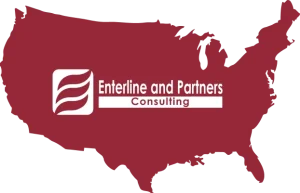The United States immigration system is designed to ensure that individuals seeking to enter the country do so lawfully and with genuine intentions. As part of this effort, one factor that U.S. immigration law considers is the concept of “preconceived intent”: the intention of individuals to engage in activities that may violate their originally proposed purpose of entry or immigration status, despite initially entering the country for a lawful purpose.
Preconceived intent is an important consideration, particularly in relation to nonimmigrant visas, which are visas granted for temporary stays in the U.S. for tourism, study, business, or work. These visas are contingent upon the applicants demonstrating that they have a genuine intention to return to their home country once the purpose of their visit and their authorized stay is over.
Applicants that have an alternative intent at the time of entry may be considered to have preconceived intent and could be found to have misrepresented the purpose of their entry.
A finding by a government officer, such as a Customs and Border Protection Officer at a Port of Entry or a U.S. Consular Officer at a U.S. Consulate or Embassy, could result in a finding of fraud or misrepresentation in seeking a U.S. visa benefit and be permanently barred from entering the United States. An alternative intent might be an applicant that enters the U.S. on a B-1/B-2 visitor visa but then changes their status to become a student and had the preconceived intent to do so.
Several factors are taken into account when assessing whether an individual had preconceived intent when applying for a nonimmigrant visa or at ports of entry. While each case is unique, the following factors are commonly considered:
- Timing and Sequence: The timing between the issuance of a nonimmigrant visa or entry and the individual’s change of plans or intentions can be crucial. If there is evidence that the individual had preconceived intent at the time of the visa application, it may raise concerns about their true purpose of applying for the visa and their travel.
- Personal Ties: Factors such as having close family members or a significant other residing in the United States may be considered when determining preconceived intent. The existence of these relationships can indicate a potential desire to remain in the country beyond the authorized stay.
- Nonimmigrant Visa Misuse: Misusing a nonimmigrant visa, such as using a tourist visa to attend school or to work, can raise suspicions of preconceived intent. Consular officers and immigration officers closely examine the individual’s actions to assess their true intentions.
In addition to the factors mentioned above, the “90-day rule” is an important consideration when evaluating preconceived intent. The 90-day rule applies to nonimmigrant visa holders who engage in unauthorized activities or requesting a change of status within 90 days of entering the United States. For example, if an individual with a nonimmigrant visa marries a U.S. citizen and files an immigrant petition (such as a green card application) within 90 days of entry, it will probably raise the presumption of preconceived intent.
There are some nonimmigrant visa categories in which the applicant is allowed to have “dual intent” and is not subject to any preconceived intent, such as the H-1B and L-1 visas.
Individuals found to have had preconceived intent may face several risks, including:
- Visa Denial or Revocation: If evidence of preconceived intent is discovered during the visa application process or after entry into the United States, the individual’s status may be revoked, they may be found ineligible for adjustment of status (such as in the case of a recent marriage) and possibly leading to immediate deportation and potential denials of future visas.
- A finding of fraud or misrepresentation will lead to a permanent bar to obtaining a visa and entering the U.S. (with a few exceptions, a waiver may be available).
- Legal Consequences: Engaging in activities inconsistent with the terms of a nonimmigrant visa, such as unauthorized employment, can lead to legal repercussions, including fines, deportation, and potential bans on re-entry into the United States.
Preconceived intent is a significant factor in U.S. immigration law, particularly concerning nonimmigrant visas. Individuals must understand the potential risks associated with preconceived intent, including the application of the 90-day rule, and entering the U.S. if they have an alternative motive. It is essential to adhere to the terms and conditions of the visa granted and seek appropriate legal guidance when necessary. By doing so, individuals can navigate the U.S. immigration system successfully and avoid the severe consequences of preconceived intent violations.
If you have questions about U.S. visas, contact us at info@enterlinepartners.com and speak with a U.S. immigration attorney in Ho Chi Minh City, Manila and Taipei.
ENTERLINE & PARTNERS CONSULTING
Ho Chi Minh City, Vietnam Office
Suite 601, 6th Floor, Saigon Tower
29 Le Duan Street
Ben Nghe Ward, District 1
Ho Chi Minh City, Vietnam
Tel: +84 933 301 488
Email: info@enterlinepartners.com
Facebook: Enterline & Partners – Dịch vụ Thị thực và Định cư Hoa Kỳ
YouTube: @EnterlineAndPartnersConsulting
Website: http://enterlinepartners.com
Manila, Philippines Office
Tel: +63 917 543 7926
Email: info@enterlinepartners.com
Facebook: Enterline and Partners Philippines
Website: https://enterlinepartners.com/language/en/welcome/
Copyright 2023. This article is for information purposes only and does not constitute legal advice. This article may be changed with or without notice. The opinions expressed in this article are those of Enterline and Partners only.








